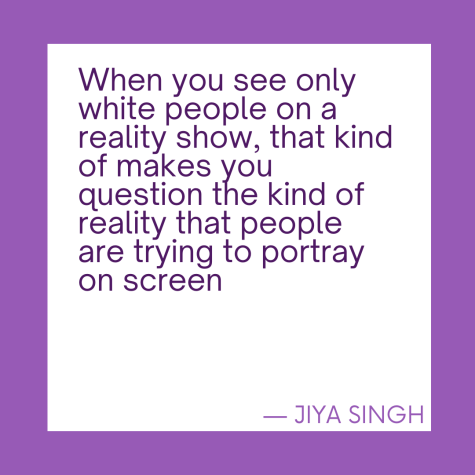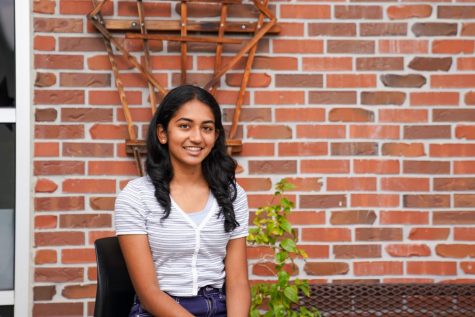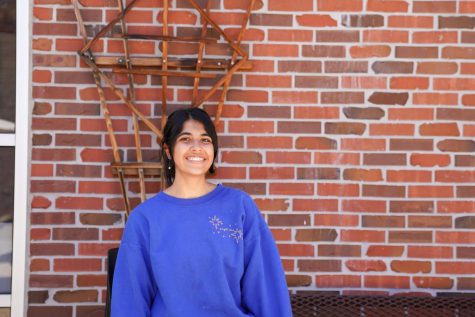It’s not really reality, but that’s OK
Why reality TV Shows don’t deserve the hate they receive
June 6, 2022
JS: Imagine this — you set up a social media account after having sworn to never do so your entire life. You’ve made a special connection with a young, beautiful girl named Rebecca. You thought the connection was mutual and real — only to find out that the person behind the screen was not Rebecca — it had been Rebecca’s boyfriend all along.
AP: This serves as just one of the plot twists in Netflix’s hit television reality series “The Circle,” which is currently streaming its fourth season. In this show, a select group of individuals all check into the same hotel to chat with each other, solely through their social media profiles on a large device. The catch? No one is allowed to meet in person until the final episode — whatever impressions the players have of another is what they present on their social media profiles. To make it that far, players form “connections” with each other through a myriad of planned games, private conversations and group chats. The player who gains the most popularity will win the “influencer” position and have a chance at sweeping the $100,000 grand prize.
JS: While the format of “The Circle” may come across as unnatural as real-life truly does not depend on the rankings of a person’s popularity, a majority of the aspects of a social media presence defining a part of one’s identity do hold true in reality — for better or worse.
AP: It’s well known that reality TV Shows are not real. Producers select the most shocking parts of their footage to attract viewers, and directors meddle with cast members to encourage certain behaviors. In fact, the producer of “The Bachelor” claims that “70 to 80% of reality shows are ‘fake.’”
JS: However, there’s a reason why reality TV has been thriving in the entertainment industry: it’s satisfying to see actual people’s raw reactions and thoughts in real-time. Although reality TV Shows undeniably have more ‘TV Show’ than ‘reality,’ the sheer existence of unfiltered human expression on screen without the silhouette of a character relates to many viewers worldwide. Though their plots are dramatized and over-edited, they are often reflective of larger societal issues.
AP: Reality TV Shows remind us that humans aren’t perfect — and that’s REALly OK. While one of the highest viewed reality TV Shows, “Keeping Up With the Kardashians,” was running on its first couple of seasons, millions of people made accounts to criticize the Kardashian family’s material spending or rude behavior as seen on the show. However, although this family obviously has a reality show of their own because of their extreme wealth and social status, the underlying raw human emotions that the Kardashians have, or the dynamic between each of the sisters, all come together to help viewers not only enjoy a piece of truly entertaining media but relate to someone they might have never even thought about.
AP: So Jiya, tell me, how did you get into Reality TV Shows?
JS: Well, I think I’ve seen or heard of reality TV Shows all my life. There are a lot of Indian reality TV Shows that I’ve definitely heard of and watched. However, I think the one that really got me into it was around two years ago, in January, February of 2020. I first got interested in “The Circle”, which we talked about a little bit, but that show completely got me hooked on to reality TV. I never thought I would actually like to watch people live in their apartments and just go about their everyday lives. And I’d actually be interested in it but “The Circle” really was designed well. And because I was able to truly see people’s personalities and how they react in real time because they aren’t even truly interacting with each other because it’s all based on their social media profiles, like we said, and they’re just able to be their own cells with the pressure of other people around them. And that’s what made me really interested in reality TV shows because I realized that all the people that we see on the screen are just like us, but in different ways. So yeah, I really liked that show and I’m still watching, I’m on the fourth season. But yeah, what about you Aashna?
AP: Yeah, so I definitely agree with the fact that “The Circle” is like one of my first exposures to reality TV Shows. I just finished the fourth season. And I think after you kept recommending it to me is when I started watching the show. And so eventually I watched it a few years after it got released for the first time and I think something that’s really interesting about that show is that there’s a prize money of $100,000, but the characters actually seem like they like each other and they care about each other and the relationships more than the money which doesn’t happen very often on reality TV shows, usually they have the money which is the most important thing. And especially in season one, you can see that they had real connections and I think it was really relatable because there was an Indian character in the first season called Shubham and you really rarely see people of color on reality TV shows. So that was a special thing.

JS: Yeah, I totally agree. I think that kind of leads into one of the other questions we thought of about reality TV Shows that we would or would not recommend. So definitely “The Circle”, we would butI know that the Bachelor is like one of the most popular TV Shows out there I believe. I think it’s ranked really high on people’s watch list or the amount of popularity that it gets. But I totally agree with what you said about seeing representation on the screen with Shubham from “The Circle” because in “The Bachelor” you know the first couple of seasons I believe every single person was white. And I think when you see only white people on a reality show that kind of makes you question the kind of reality that people are trying to portray on screen. And so I do appreciate how like the bachelor itself that’s going on, it’s like 26th season and you can see that there’s around like 60% of the people are people of color which obviously could use some more work because obviously there are more than 60% people of color who exist. But I think that that’sa really good improvementfrom before. And I’m glad that reality shows now these are incorporating more diversity into their agenda.
AP: Yeah, I actually don’t think I’ve ever watched “The Bachelor” but I remember I was watching a bunch of reality dating shows, like “Love is Blind Season Two”, which I recommend to you guys. And I was trying to watch “The Bachelor”, but I was looking through all the seasons and there were no people of color like in any of the seasons. And so that was like first of all, like a really big turn off for me and but now as you’re saying I think has more diversity now. So I think they’ll be more interested in the show. Yeah. And do you have any other experiences with that kind of genre reality TV?
JS: With dating shows? Yeah. I think I need to get more into it. I watched “Too Hot To Handle”. It’s not really dating. It’s OK. So I would say it’s kind of like a cross between a dating show and like “The Circle” in a way because the whole idea of to want to handle basically, is to put a bunch of so-called hot people which is also interesting because we see like, the hot people that they choose, it’s kind of interesting to see like what the people who made the show think that hot is. I was watching the show with a friend actually, and the whole time there were these two white guys who were just not the slightest bit hot. I mean, according to us, and I think he watched the first season it’s like very clear, and the whole time we’re just talking to ourselves. There’s so many attractive people that exists in the world that I could literally name who could be on the show right now. But the makers of the show just like chose like these two average white looking then instead. But that shows like interesting because the whole point of it is to literally see how long people can like how long people can go without having sex when they’re all on the same island. And that’s the whole point of the show. It’s so dumb, but I still watched it. But you can see like how easily these people just gave into it and they started having different forms of, you know, sexual pleasure, whatever, in different ways. And we’ll start off with like a kiss or something. And sometimes it led to something more and sometimes it didn’t, but it was like interesting, but I don’t think I would recommend it at all. I did not like it. But I think it’s just like the epitome of a true piece of bad entertainment. At least for me. But what about you?
AP: I also watched I think a few episodes of season two of “Too Hot to Handle” but I think the show is just really weird. First of all, like their beauty standards like you said, because people they chose as hot people are like, again, mostly white and have the specific look to them. And this specific body type and I was watching season two, I think there were only like two black characters or not characters but people and the rest of the people were all white. And so there wasn’t actually any inclusivity and what they thought how people looked like. So that was like firstly unrelatable but also it was like really distant to me and you high school students because like we have so many bigger struggles and things that we’re worried about other than, oh, you know, I can’t have sex on this island. You know, I think it’s really funny. It was really jarring to watch that show because the characters were so blatantly shallow and so focused on like, looks and appearances. They didn’t have any shame at all in the fact that they were like, openly this way. And I thought that was really funny and also weird to watch on the show.
JS: I agree that is funny, honestly and I totally agree that it goes against our topic of being able to relate to stuff because it’s made for like such a specific audience of all of the other so-called hot people that they listed as hot, and instead of, yeah I agree, us who are just normal high schoolers or people older, younger. And I’m sure that things definitely that’s why actually shows like “The Circle” or “Love is Blind” are successful is because they’re just about normal people who are just like us, instead of like, you know, too hot to handle just so specific. So Aashna what do you what would you say is your favorite part about reality TV?
AP: I like reality TV because even though the situations and the set-ups that these characters are in are really crazy and not what happens in everyday life. I feel like the thing that’s interesting about reality TV is that the people are actually like real people like you and me. And so I can just fantasize and be like, Oh, I could be on that show. Like what would I do if I were in “The Circle”? What strategies would I use, etc? And also, there’s this thing that’s really addictive about reality TV Shows because obviously the way that they edit the shows has to play into that and they always leave on cliffhangers every single episode, and the characters, some things they say are just so crazy. You may think about them, but then these people are like out here saying what’s on their mind a lot of the times so that’s like really, also it’s kind of interesting how like reality shows are not like not real life. They’re also like more interesting. They feel like that’s what’s interesting sometimes.
JS: Yeah, I totally agree. I think [these shows are] a combination of reality and non-reality, but no matter what, it still has that component of being really raw and having people state their true thoughts all the time, which is just really interesting to see. And the fact that like anyone can apply to be on a reality show. Not just these dating shows, but even Jeopardy or something like anyone can apply to be on these shows. I think that’s what makes it so much more enticing is that it’s so relatable. I remember, what was the name of the show that you really loved?
AP: Single’s Inferno?
JS: So I didn’t watch the show, but I know that when the show came out and I think was like January or something, Aashna was obsessed with it. And there were a lot of other people were obsessed and I was on the receiving end of that because everyone was telling me about the show. I was in my lit class or in journalism or something and people were just telling me about the show. And so from what I remembered about what people liked about it, they were just going on about what characters they related to and what characters that didn’t relate to. And everyone had their own opinion about different characters. And so I think that on regular scripted shows, to some extent, those are characters that are written, but you can’t like write a real character, because those are just people and there’s someone there like nuanced in so many different ways and they have different takeaways. So I really like seeing that you can watch friendships and relationships being made in reality shows like in real-time.
AP: Yeah. I think that’s really cool. And what you said earlier, in scripted TV, like all the characters are written by this executive person is oftentimes white and old and not very connected with the people who are in the show. A lot of times for us specifically, as teenagers, we always see that these shows about teenagers don’t sound like what we would say because they’re written by old people and there’s like a disconnect to it, but with reality TV Shows everyone is authentically themselves. Everyone has written by themselves. There’s no author or whatever. And so there’s something unique about that.
JS: Yeah, I totally agree. I think that having scripted characters are good in a way because it does show that there is some changes happening in Hollywood and other movie industries and we are seeing a lot more representation. But obviously, there’s something special about reality TV Shows, just having that sense of authenticity with people getting to be themselves no matter what their race is or what their ethnicity is or their gender is. And that’s something that’s really, really unique to reality shows that I would say it’s probably something that both of us really appreciate the most.
JS: Reality TV Shows rarely depict the casual lives that we live, but that’s for good reason. We watch TV to escape our own reality, not to see it depicted again on the screen. So, although we may never become as popular as Sammie from “The Circle” or “as hot” as Francesca from “Too Hot to Handle,” we might just see ourselves within their true personalities. Behind the flashy editing and high-budget, unrealistic situations, the characters in Reality TV Shows are real people — and this authenticity is what makes Reality TV REAL-ly special.

















